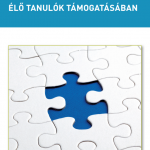ABSTRACT
In this article, part of the data obtained in a more extensive research is contextualized within a research project entitled “Diagnosis and teacher training for the incorporation of ICT in students with functional diversity” within the framework of the State Development Plan of the Scientific and Technical Research of Excellence 2013-2016 (DIFOTICYD EDU2016 75232-P). The general objective was focused on the iden-tification of the level of training and technological knowledge that the special education teachers of the city of Seville (Spain) have regarding the application of ICT for people with different types of disabilities. At the same time, we try to know if this level of training and technological knowledge is determined by variables such as gender, years of experience or the type of educational center where they teach (Public, Private or Private-arranged). From a research design of the ex post-facto descriptive type, using a non-probabilistic causal or accidental sampling. The sample consisted of 34 professors and teachers from the city of Seville (Spain) and its province. As an information collection strategy, we used an ad hoc ques-tionnaire, validated through the “Expert Competency Coefficient” or “K-Coefficient” procedure. The level of reliability of the instrument was analyzed by Cronbach’s alpha (α = 0.993). Among the results obtained, we highlight the low level of training that the students of the Teaching Degree present regard-ing the application of ICT for people with disabilities.
KEYWORDS
Information and Communication Technologies, disability, educational inclusion, accessibility.






